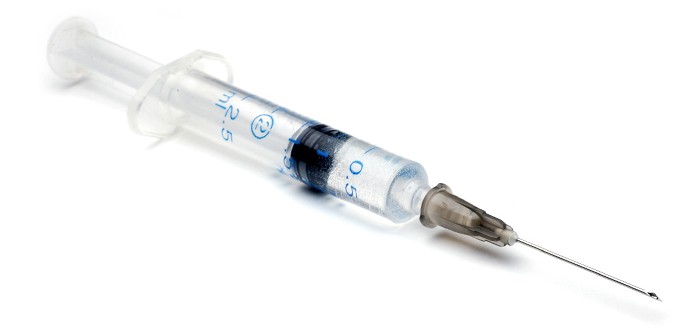Fighting fire with fire is the idea behind a novel mesothelioma therapy derived from the sometimes fatal germ listeria.
Usually, you run into listeria in the kitchen. If your food is contaminated by it, it can cause illness ranging from nausea and diarrhea to convulsions and even death.
Unlike mesothelioma, though, listeria isn’t guaranteed to kill you. But when listeria does kill, it takes life far, far quicker than mesothelioma.
Researchers have discovered that this vicious germ can be genetically modified and turned into a vaccine that strengthens your immune system’s ability to fight mesothelioma.
Testing the Mesothelioma Vaccine
The listeria weapon against mesothelioma has advanced beyond the laboratory and into clinical trialing. Not long ago, it completed Phase 2 testing in humans.
CRS-207 is the name the company — Aduro Biotech — has given the listeria-based vaccine. At the Meso Foundation’s live Meet the Mesothelioma Experts conference call, the CEO told listeners that CRS-207 appears to be safe and effective.
According to Aduro’s top officer, Stephan T. Isaacs, CRS-207 works by boosting the body’s immunity to mesothelioma tumors and other malignancies arising in the vicinity of the lungs and abdomen.
The Phase 2 trial was conducted with the help of researchers from the Johns Hopkins Sidney Kimmel Comprehensive Cancer Center. Isaacs explained that the trial was stopped early because it was clear that the new vaccine had met all the safety and efficacy goals set for it.
Results from the New Mesothelioma Vaccine
Aduro first made public the results of this trial at the annual American Society of Clinical Oncology’s Gastrointestinal Cancers Symposium held earlier this year in San Francisco.
The clinical trial was designed to be conducted as a randomized, controlled, multicenter study. Ninety-three advanced-stage pancreatic cancer patients were enrolled.
The patients were divided into two groups. The first received a combination of CRS-207 plus a second Aduro cancer vaccine called GVAX Pancreas. The second group received just the GVAX Pancreas.
Most of the enrollees had been vaccinated with one or both of these products two or more times prior to the start of the Phase 2 trial.
Aduro reported that the patients in the first group – the ones who got CRS-207 with GVAX Pancreas — received four doses. Those in the second group received six doses of just the GVAX Pancreas.
In both groups, the vaccines were well tolerated, with no treatment-related serious adverse events or unexpected toxicities observed.
There was also a predefined subset of patients in each group. In the CRS-207 plus GVAX Pancreas group, this subset received at least one extra dose of CRS-207. The other group’s subset got at least three extra doses of GVAX Pancreas.
Mesothelioma Survival Looked Promising
Median overall survival for the first group’s subset was 9.7 months compared to 4.6 months for the second group’s subset.
This compares to 6.1 months median overall survival for the entire first group and 3.9 months for the full second group.
For the first group, these numbers translated to a 24 percent one-year survival probability. Members of the second group came away with a one-year survival probability exactly half that of the first group’s.
“The significant improvement in survival in patients treated with our combination therapy expands on building evidence that immunotherapy can be a promising approach in oncology,” Isaacs said.
“We are thrilled to be at the forefront of innovation in the field and look forward to advancing our vaccines into additional clinical trials in pancreatic cancer and other indications.”


